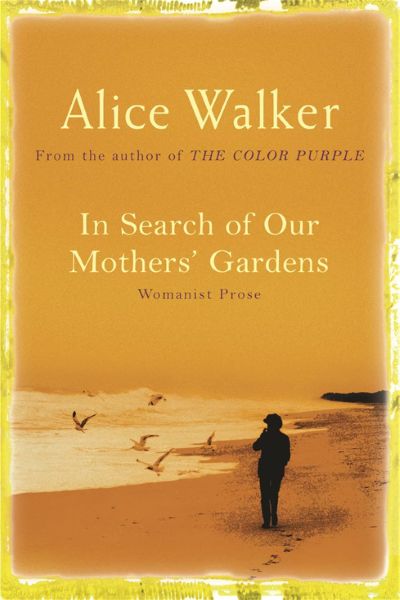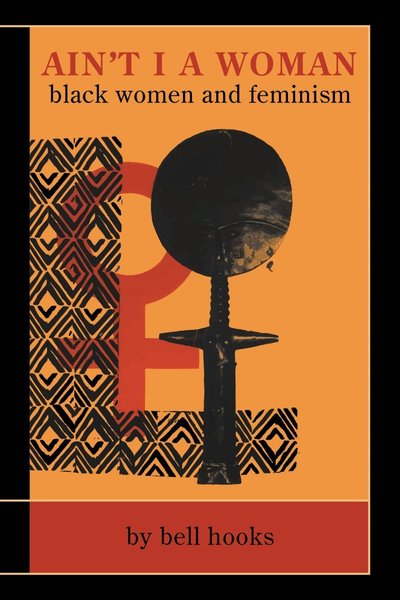In Search of Our Mothers' Gardens
A collection of essays, speeches, and reviews spanning 20 years by Pulitzer Prize winner Alice Walker, focusing on the intersection of personal and political, from civil rights movement to anti-nuclear sentiment, from literary criticism to personal reflections of Black women, mothers, and feminists. Called 'womanist prose' by the author, it provides profound perspectives for understanding late 20th-century feminism.

📝 Book Review
At the intersection of 20th-century American literature and social movements, Alice Walker’s “In Search of Our Mothers’ Gardens” serves as a bridge connecting personal experience with collective memory, literary creation with political action, Black women’s historical heritage with contemporary feminist thought. This 1983 essay collection gathers Walker’s important writings from the early 1970s to early 1980s, witnessing a Pulitzer Prize winner’s journey from young writer to significant thinker, while providing precious intellectual resources for understanding Black feminism, literary criticism, and American social transformation.
As the author of “The Color Purple” and a participant in the civil rights movement, Walker’s writing is always rooted in Black women’s lived experiences while transcending narrow identity boundaries to touch on eternal themes of creation, love, resistance, and liberation that all humanity faces. “In Search of Our Mothers’ Gardens” is not merely a personal memoir but a deep excavation of American Black women’s cultural traditions and an important contribution to contemporary feminist theory.
Innovative Expression of “Womanist Prose”
Walker creatively uses the concept “womanist” in the book to distinguish it from traditional “feminist.” This term derives from Southern Black women’s colloquial expression “womanish,” referring to mature, responsible, and powerful women. Through this concept, Walker attempts to establish a more inclusive theoretical framework that is closer to Black women’s experiences, acknowledging both the universality of gender oppression and the complex intersection of race, class, and other factors.
The expression “womanist prose” reflects Walker’s breakthrough of traditional literary genres. Her writing is neither pure academic papers nor simple personal essays, but an innovative literary form that organically combines theoretical speculation with life experience, historical research with contemporary concerns. This writing method provides important methodological insights for later feminist criticism and cultural studies, proving the organic connection between personal narrative and theoretical construction.
Rediscovering Black Women’s Literary Tradition
One of the most influential articles in the book, “In Search of Our Mothers’ Gardens,” explores the issue of Black women’s creative tradition. Walker keenly realizes that traditional literary history often overlooks Black women’s creative contributions because their creativity often doesn’t appear in the form of written literature but is embodied in gardening, cooking, sewing, singing, and other daily life practices. This form of creative expression is both a limitation of historical conditions and a unique form of cultural inheritance.
Walker uses her own mother as an example, describing how she still expressed her artistic talent through carefully tending gardens under the pressure of poverty and racial discrimination. This garden is not only a creation of beauty but also a spiritual space for resisting oppression and maintaining dignity. Through this concrete and vivid example, Walker reveals the resilience and diversity of Black women’s creativity, providing a completely new perspective for reassessing women’s artistic traditions.
This tribute to “unnamed” female artists is both a correction of historical injustice and encouragement for contemporary Black women creators. Walker believes that contemporary Black women writers can create works like “The Color Purple” precisely because they inherited the creative power accumulated by these “mothers.” This continuity of cultural inheritance constitutes an important characteristic of Black women’s literature.
Rediscovering Zora Neale Hurston
One of “In Search of Our Mothers’ Gardens’” most important contributions to 20th-century American literary history is the rediscovery and reevaluation of Zora Neale Hurston’s work. When Walker wrote related articles in the 1970s, Hurston’s works were almost forgotten by the literary world, and her grave site was even unknown. Through field investigations, Walker finally found Hurston’s grave in Florida and erected a monument inscribed with “Genius of the South, Novelist and Folklorist.”
Walker’s reevaluation of Hurston is not only a correction of literary history but also reflects her profound understanding of Black women’s literary tradition. She believes Hurston’s work was overlooked at the time partly because her complex political stance and unique artistic style didn’t conform to mainstream racial struggle narratives of the time. But it is precisely this complexity that makes Hurston’s work appear richer and more profound today.
Through reinterpreting Hurston, Walker proposes an important principle of literary criticism: evaluating a writer’s work cannot only look at whether it meets current political needs, but more importantly whether it truthfully reflects the complexity of human experience. This principle applies not only to literary criticism but also provides important insights for understanding the diversity of feminist thought.
Personal Witness to the Civil Rights Movement
As a participant in the civil rights movement, Walker provides many precious firsthand materials in the book. She participated in student movements of the 1960s, witnessed Martin Luther King Jr.’s speeches, and experienced the cruel reality of racial segregation. But Walker’s narrative is not simple historical recording but deep reflection on this important historical period from the unique perspective of Black women.
Walker particularly focuses on gender dynamics within the civil rights movement. She points out that although the civil rights movement fought for racial equality, within the movement, women often still faced gender discrimination. The contributions of Black women activists were often marginalized, their voices often overshadowed by male leaders’ voices. This double oppression experience meant Black women had to simultaneously face challenges from both racism and sexism.
At the same time, Walker also deeply reflects on the limitations of the civil rights movement. She believes that pure political rights appeals are insufficient; true liberation must include liberation of cultural identity, spiritual freedom, and creativity. This comprehensive liberation concept provides important theoretical resources for later diversified social movements.
Anti-Nuclear Movement and Environmental Consciousness
“In Search of Our Mothers’ Gardens” also demonstrates Walker’s deep concern for nuclear weapons threats and environmental destruction. Against the Cold War backdrop, Walker keenly realized that nuclear weapons not only threaten human survival but also threaten the future of all life on Earth. Her anti-nuclear stance is based not only on political considerations but more on cherishing life itself and sense of responsibility for future generations.
Walker’s environmental consciousness is closely related to her feminist stance. She believes that exploitation of nature and oppression of women are essentially connected, both reflecting a dominating value system. Therefore, the feminist liberation cause must combine with environmental protection, jointly constructing a more harmonious and sustainable world.
This ecofeminist concept was quite forward-looking at the time, providing important theoretical foundations for later environmental justice movements. Walker’s contribution lies in her discussion of these issues not only from abstract theoretical levels but more from concrete life experiences, showing how ordinary people practice environmental protection and social justice concepts in daily life.
Dialectical Relationship Between Motherhood and Creativity
The book’s exploration of the relationship between motherhood and creativity is an important component of Walker’s thought. Traditional notions often consider motherhood and artistic creation mutually conflicting—once women become mothers, they must sacrifice their creativity to care for families. But through her own experiences and observations, Walker proposes different viewpoints.
Walker believes maternal experience can become important creative resources rather than obstacles. Becoming a mother allowed her to understand life’s meaning more deeply and feel more strongly the sense of responsibility for the future. This experience enriched her creative content and deepened her understanding of humanity. At the same time, she also acknowledges challenges brought by motherhood, including time limitations and pressure from social expectations.
More importantly, through the image of “searching for our mothers’ gardens,” Walker redefines the concept of creativity. She believes creativity is embodied not only in traditional artistic works but in all aspects of daily life. Those mothers who cannot enter studies to write are still creating beauty, inheriting culture, and nurturing future generations in their own ways.
Intersectional Perspective on Race and Gender
One of “In Search of Our Mothers’ Gardens’” most important theoretical contributions is its profound understanding of the intersectionality of race and gender. Through her life experiences and writing practice, Walker demonstrates the complex predicament faced by Black women: they must face racial discrimination as Black people, gender oppression as women, and possibly other forms of inequality such as class and regional differences.
This intersectionality is embodied not only in the accumulation of oppression but also in the complexity of resistance strategies. Black women cannot simply choose racial identity or gender identity but must find balance points among multiple identities. This complexity requires more detailed and inclusive theoretical frameworks and more flexible and diverse practical strategies.
Walker’s “womanist” concept is precisely proposed based on this intersectional understanding. She believes true feminism should be inclusive, able to accommodate diverse experiences of women of different races, classes, and sexual orientations. This inclusivity is not simple addition but requires recognizing the uniqueness and interconnection of different groups of women’s experiences.
New Methods of Literary Criticism
As an important literary critic, Walker demonstrates unique critical methods in “In Search of Our Mothers’ Gardens.” Her criticism is neither pure formal analysis nor simple political interpretation but a comprehensive method organically combining textual analysis, historical research, personal experience, and social criticism.
Walker particularly focuses on works’ social contexts and cultural backgrounds. She believes understanding a literary work requires knowing its historical production conditions, the author’s life experiences, and the work’s relationship with contemporary social reality. This historicizing critical method provides important methodological insights for literary research.
At the same time, Walker also emphasizes critics’ subjectivity and positionality. She believes critics cannot be completely objective; their racial, gender, and class backgrounds all affect their understanding of works. Therefore, critics should honestly acknowledge their positions and treat them as organic components of the critical process. This reflexive critical attitude had important influence on later feminist criticism and postcolonial criticism.
Criticism and Dialogue with White Feminism
“In Search of Our Mothers’ Gardens” also contains Walker’s criticism and reflection on mainstream white feminist movements of the time. Walker points out that 1970s feminist movements, though making important contributions to fighting for women’s rights, often ignored differences in race, class, and other factors, actually mainly reflecting middle-class white women’s experiences and needs.
Walker’s criticism is not simple rejection but constructive dialogue. She believes that for feminist movements to truly achieve their liberation goals, they must include all women’s experiences, especially those of women under multiple oppressions. This requires mainstream feminist movements to engage in self-reflection and adjustment, and also requires establishing genuine dialogue and alliances between women of different backgrounds.
Walker’s “womanist” concept is precisely the product of this inclusive thinking. “Womanism” is not a denial of feminism but an expansion and deepening of it. It emphasizes respect for all life, cherishing diversity, and pursuing wholeness. This concept provides important foundations for later multiculturalism and intersectionality theory.
Reflection on the Creative Process
The book also contains Walker’s deep reflection on her own creative process. She describes in detail the creative experiences of important works like “The Color Purple,” showing how a writer draws creative inspiration from life experiences and conducts self-exploration and social criticism during the creative process.
Walker particularly emphasizes the “listening” ability in creation. She believes that as a Black woman writer, her mission is not only to express her own voice but also to provide expression platforms for voices forgotten by history and ignored by society. This “listening” is not passive reception but active seeking, excavation, and interpretation.
Walker’s creative philosophy also reflects her unique understanding of art’s social function. She believes art should not be self-admiration in ivory towers but should be closely related to social reality and serve social transformation. But this service is not simple propaganda but helps people better understand themselves and the world by truthfully reflecting the complexity of human experience.
Spiritual Tradition and Contemporary Practice
“In Search of Our Mothers’ Gardens” also explores the relationship between African American spiritual traditions and contemporary practice. Walker deeply studies the influence of traditional African religions, Christianity, and various folk beliefs on Black communities, showing how these spiritual resources provide strength sources for resisting oppression and maintaining dignity.
Walker’s understanding of spiritual traditions is open and inclusive. She both acknowledges the value of traditional religions and criticizes conservative and oppressive factors within them. She particularly focuses on women’s status and roles in these spiritual traditions, exploring how women seek their spiritual homes within and outside religious frameworks.
This attention to spirituality gives Walker’s feminist thought deeper connotations. She believes true liberation is not only political and economic but also spiritual. Only by achieving freedom at the spiritual level can people truly realize comprehensive liberation. This holistic liberation concept provides important theoretical resources for contemporary social movements.
Thoughts on Education
As a former teacher and lifelong learner, Walker also conducts deep thinking about education issues in the book. She particularly focuses on racial and gender bias in education, criticizing traditional educational systems’ neglect and discrimination against minority students and female students.
Walker proposes that true education should be liberating, helping students discover and develop their potential rather than simply transmitting predetermined knowledge and values. This educational philosophy requires educators to have open mindsets and critical spirits, able to establish equal dialogue relationships with students.
At the same time, Walker also emphasizes the importance of self-education. She believes that in a society full of bias and injustice, individuals must possess self-education capabilities, must be able to think independently, critically question, and continuously learn. This self-education capability is not only needed for personal growth but also the driving force for social progress.
Global Vision and Local Concerns
Although “In Search of Our Mothers’ Gardens” mainly focuses on American social realities, Walker’s thinking has obvious global vision. She concerns herself with Third World women’s situations, thinks about imperialism and colonialism’s impact on the Global South, and explores commonalities and differences in women’s liberation under different cultural backgrounds.
Walker’s global vision doesn’t mean neglecting local concerns. On the contrary, she believes only by deeply understanding one’s own cultural traditions and social realities can one truly understand other cultures and societies’ experiences. This thinking mode starting from local and facing global provides important insights for later postcolonial theory and global feminism.
This ability to balance local and global is also reflected in Walker’s attitude toward different cultural traditions. She both feels proud of her African American identity and maintains open and respectful attitudes toward other cultural traditions. This multicultural stance provides important intellectual resources for building a more inclusive and harmonious world society.
Continuing Influence on Contemporary Times
Since its publication, “In Search of Our Mothers’ Gardens” has had profound influence on American literature, feminist theory, and social movements. The “womanist” concept proposed in the book has become an important component of contemporary feminist theory, providing important tools for thinking about the intersectionality of race, gender, class, and other multiple identities.
In the literary field, Walker’s excavation and interpretation of Black women’s literary traditions not only promoted rediscovery of forgotten writers but also provided important spiritual resources for contemporary Black women writers’ creation. From Toni Morrison to Zadie Smith, many important writers have been influenced and inspired by Walker’s thought.
At the social movement level, Walker’s intersectional thinking provides important theoretical foundations for contemporary social justice movements. From Black Lives Matter to #MeToo movements, we can see traces of Walker’s thought influence. The inclusivity, diversity, and wholeness she emphasizes provide important guidance for building more just and equal societies.
Enduring Contemporary Relevance
To this day, “In Search of Our Mothers’ Gardens” still holds strong contemporary relevance. In the globalization era, many questions Walker raised—intersectionality of race and gender, relationships between cultural traditions and contemporary practice, balance between local concerns and global vision—remain important issues we must face. Her thinking and exploration provide precious wisdom resources for understanding and addressing contemporary society’s complex challenges.
“In Search of Our Mothers’ Gardens” is not only an important feminist classic but also a profound work of humanistic thinking. It reminds us that true liberation causes need historical perspective, global vision, inclusive mindset, and continuous effort. In the process of searching for “our mothers’ gardens,” we are also searching for humanity’s common spiritual homeland and future hope.
Conclusion: Gardens as Metaphor and Reality
The central metaphor of the mother’s garden serves multiple functions in Walker’s work—it represents both the literal spaces where Black women exercised creativity under constraints and the metaphorical space of cultural inheritance and artistic expression. The garden becomes a site of resistance, beauty, and survival, where life persists and flourishes despite adverse conditions.
Walker’s genius lies in recognizing that creativity cannot be destroyed, only redirected. When Black women were denied access to traditional artistic venues, they created art in their daily lives, in their gardens, in their quilts, in their songs. This recognition revolutionizes our understanding of artistic production and cultural value, insisting that art exists wherever humans create meaning and beauty.
The book’s lasting power stems from its ability to connect individual experience with collective history, to bridge personal narrative and political analysis, to honor both tradition and innovation. Walker demonstrates that searching for our mothers’ gardens is ultimately about recognizing the sources of our own creative power and using that recognition to fuel continued resistance and creation.
Through this collection, Walker establishes herself not only as a significant literary voice but as a crucial theorist of intersectional feminism, environmental consciousness, and cultural preservation. Her womanist philosophy continues to influence contemporary movements for social justice, reminding us that true liberation must address the whole person within the whole community, recognizing the interconnectedness of all struggles for dignity and freedom.
Discussion
读书讨论
分享您对这本书的感想和看法,与其他读者交流见解
加入讨论
分享您对这本书的感想和看法,与其他读者交流见解
加载评论中...
Book Info
🛒 Get This Book
 Buy on Amazon
Buy on Amazon Related Books
读书讨论
分享您对这本书的感想和看法,与其他读者交流见解
加入讨论
分享您对这本书的感想和看法,与其他读者交流见解
加载评论中...

